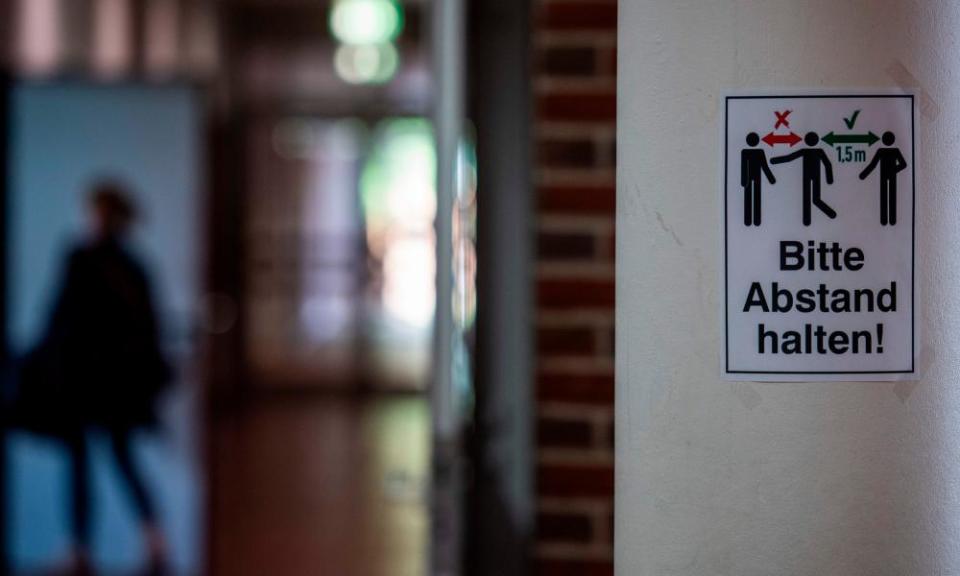Global report: France 'could lose control of Covid-19 at any time'

France’s top scientific body has said the country risks losing control of its Covid-19 outbreak and the head of the doctors’ union in Germany has said it is already facing a second wave, as the number of infections ticks up across Europe.
The French government’s scientific council said a second wave was highly likely this autumn or winter, and that the situation was currently “under control, but precarious. We could at any moment tip into a scenario that is less under control”.
The virus had “recently been circulating more actively, with an increased loss of distancing and barrier measures” since France emerged from its strict two-month lockdown in May, it said, and a return of the epidemic as soon as the summer could not be ruled out.
The warning came as authorities seek to contain a sharp increase in new cases over the past fortnight, with 3,376 new infections confirmed in the last three days and the number of people being treated for the disease in ICUs starting to inch higher.
Health ministry data shows the number of people in intensive care rose by 13 between Friday and Monday, ending a downward trend maintained since April. Twenty-nine new deaths were reported over the same period, taking France’s total to 30,294.
Authorities in a number of regions have already started to tighten public hygiene rules. Major cities such as Lille and Nice have ordered people to wear masks outdoors in particularly busy pedestrian streets.
The prime minister, Jean Castex, urged France on Monday “not to let down its guard”, and called on “every French person to remain very vigilant. The fight against the virus depends on the state, local communities, institutions – but also on each of us.”
After strict lockdowns stemmed infection rates, the number of cases has begun to creep up in many European countries as curbs have been steadily eased to limit the damage to their economies and allow for a much-needed summer holiday season.
default
Germany is already contending with a second wave of the virus and risks squandering its early success because people have been flouting social-distancing rules, according to Susanne Johna, the president of Marburger Bund, which represents the country’s doctors.
“We are already in a second, shallow upswing,” she told the Augsburger Allgemeine newspaper on Tuesday, urging people to continue to respect distancing and hygiene rules and wear masks despite an understandable desire to return to full normality.
The number of confirmed cases in Germany rose by 879 to 211,281, the Robert Koch Institute (RKI) reported on Tuesday, and the country’s death toll climbed by eight to 9,156. More than half of Germany’s almost 21,000 intensive care beds are currently free and hospitals are well prepared, Johna said.
The main German teachers’ union also cautioned on Tuesday that the nation’s staggered return to school was a major risk. Schools were not prepared, it said, citing the fact that many classroom windows could be opened for security reasons as one danger.

Poland meanwhile reported its fourth record daily increase in a week, with 680 new cases bringing its total to 48,149. More than 30% were in the southern Silesia region, which has been grappling with another outbreak among coal miners.
The government is considering tighter restrictions, including the introduction of mandatory testing for all travellers returning to the country and a quarantine period for those coming from certain countries. Sittings of the upper and lower houses of parliament have been postponed by a week after a senator tested positive.
Russia reported 5,159 new cases on Tuesday, pushing its total to 861,423, the fourth highest in the world. The official death toll rose by 144 in the past 24 hours to 14,351.
The UN secretary general, António Guterres, said the coronavirus pandemic had led to the largest disruption of education in history, with schools closed in more than 160 countries in mid-July and more than a billion students affected.
In a video message and 26-page policy briefing, Guterres said the world faced “a generational catastrophe that could waste untold human potential, undermine decades of progress, and exacerbate entrenched inequalities”.
He called for schools to reopen once local transmission of the virus is under control. “The decisions that governments and partners take now will have lasting impact on hundreds of millions of young people and on the development prospects of countries for decades to come,” he said.

 Yahoo News
Yahoo News 
